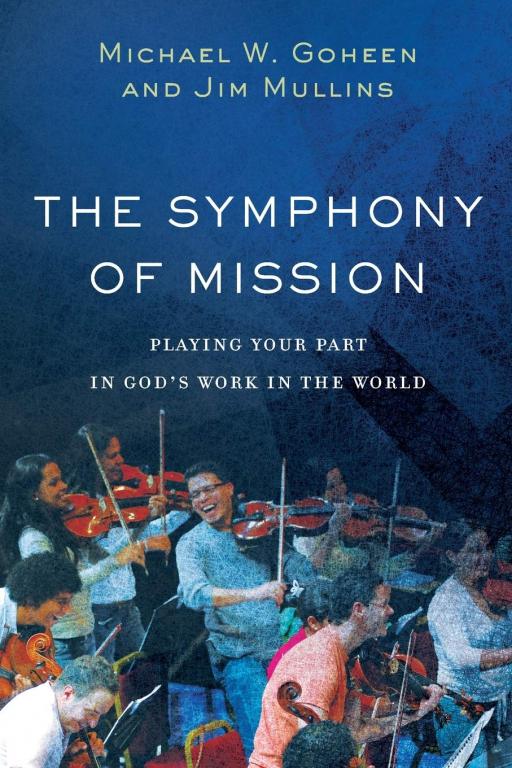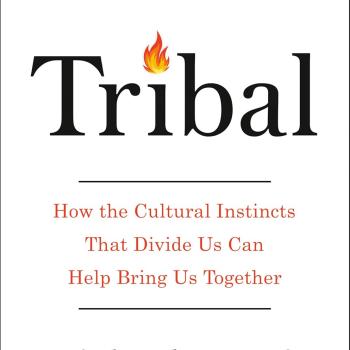 This final post looking at The Symphony of Mission (by Michael Goheen and Jim Mullins) offers a few practical tools. Jim Mullins graciously made them available to me to share with you. These three exercises help us to apply the many rich insights found within the book. They equip us to reflect on the creative ways of joining in God’s mission.
This final post looking at The Symphony of Mission (by Michael Goheen and Jim Mullins) offers a few practical tools. Jim Mullins graciously made them available to me to share with you. These three exercises help us to apply the many rich insights found within the book. They equip us to reflect on the creative ways of joining in God’s mission.
For the first post, click here.
For the second post, click here.
Exercise 1: Reflecting God’s Character
This first exercise is relatively self-explanatory. Not only does it help us consider how our work reflects God’s character, it motivates us to find more ways to demonstrate the glory of God in our daily life.
Exercise 2: Carrot Cake
John Calvin wrote,
“All the blessings we enjoy are Divine deposits, committed to our trust on this condition, that they should be dispensed for the benefit of our neighbors.”
The process of creatively loving our neighbors often resembles the creation of a new recipe. We look into the pantry of our lives, see what we have to work with, and imagine new recipes for loving others. It doesn’t take a stroke of genius or an eccentric personality. It just takes the ability to see three things:
1) World’s Brokenness (problems).
2) Your Resources (gifts).
3) Ways to use your resources to address the brokenness (creative love).

Our minds would be overwhelmed with the redemptive potential if we just slow down enough to reflect on the brokenness around us and the potential blessing embedded in something as simple as a bicycle, iPhone, or degree in accounting.
The problem isn’t a lack of creativity; it’s a lack of attentiveness. Our distracted lives keep us from slowing down reflecting on the true nature of the problem and all of the possibilities of creative love.
We’ve created a little game to help us to re-imagine and re-order our stuff for the sake of blessing. Just like the carrots were re-purposed, from being a side item, snack or salad addition, to be a sugar substitute in a dessert item, so we can re-purpose the things of our life.
Here’s how it works:
Step 1: Make a list of the problems in your area of mission focus. Then create a stack of index cards with one problem written on each card (loneliness, racism, etc.).
Step 2: Take a second stack of cards where we write all of the resources that God has blessed you with (bike, front yard, baking skills, etc.). This is similar to the resources you listed in the Life Audit exercise, but we encourage you to be even more specific. Instead of writing “training/education,” write something like bachelor’s degree in marketing.
Step 3: Shuffle both stacks of cards and then draw one “resource” card and one “brokenness” card.
Step 4: Spend time brainstorming ways to use this resource to address some aspect of the world’s brokenness. Sometimes the combinations are pretty ridiculous, like using “pancake recipe” to help “exhausted teachers.”
Exercise 3: Re-narrating the World
The Spirit has embedded clues to the gospel, echoes of the biblical story, even in the midst of idolatrous cultural stories. There are echoes of God’s character everywhere, because all people are created in God’s image, and all creation bears witness to the Creator.
There are echoes of creation and the fall everywhere because each person, every single day, experiences the overwhelming goodness of God’s world and the devastating presence of sin and its effects. In every cultural context, there are people who provide an echo of God’s restoration of creation. By serving, restoring, giving, and healing, these people point to the redeeming work of Christ.
To help identify the echoes of the biblical story embedded in your context, think about the following:
Echoes of God
Where are glimpses of God’s character on display around you? Is there creativity in a co-worker, hospitality in a neighbor, or wisdom in a local teacher? By identifying the ways in which the image of God is displayed through the image-bearers in your context, you will be able to engage in affirmational evangelism by honoring what you appreciate about them and showing them how they reflect God.
Echoes of Creation
What do people around you love about God’s world? How are they experiencing the goodness of Creation? For example, they may love gardening, woodworking, comic books, or new technologies. How can you affirm these good things and show how each is a gift from God?
Echoes of the Fall
What are the greatest struggles of the people in your social context? How are they experiencing the reality of a fallen world? Some people in physical pain need to hear about the risen Christ who entered into the human experience of pain on the cross and died to deliver us from death. Some people are angry about economic or ecological injustices. They need to hear about the savior who endured injustice through his unjust arrest and execution, and will one day return to judge fairly, and to liberate all who are oppressed.
Echoes of Redemption
Where do you see examples of healing that might serve as an echo of the work of Christ? For example, you might know an employer who sacrifices some of her own potential salary in order to provide benefits for her staff. Maybe you know of a family who has adopted a child and can tell them about how they reflect the God who adopts us into his family.
Individually, we can use these exercises. But these three exercises are especially good for using among teams. They will stimulate fantastic conversation as you read through The Symphony of Mission.
Which of these exercises do you plan to try first?













